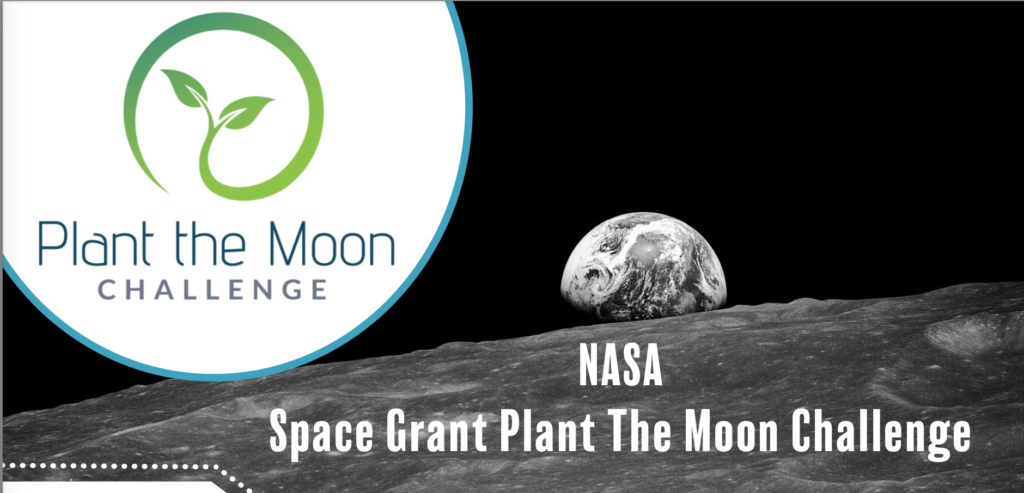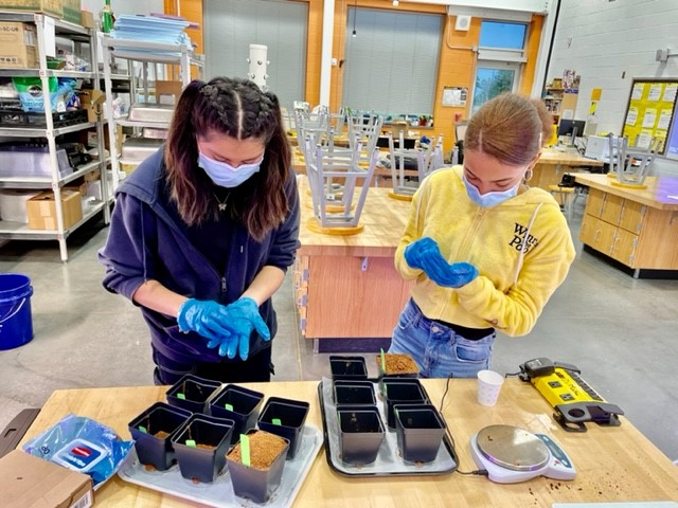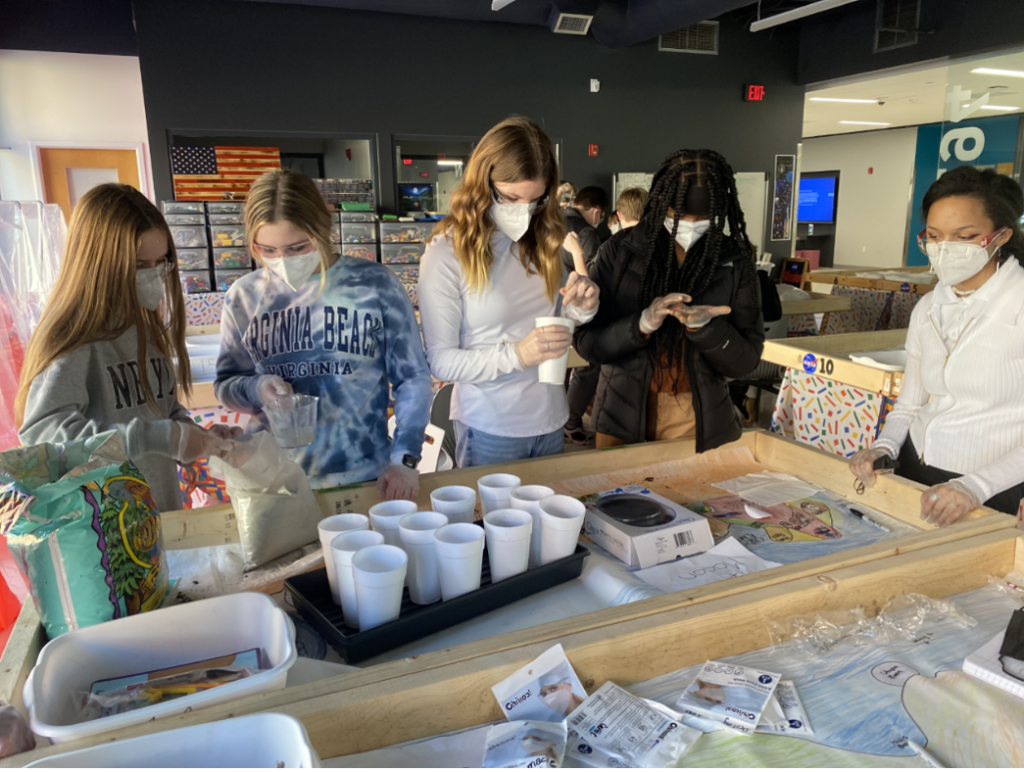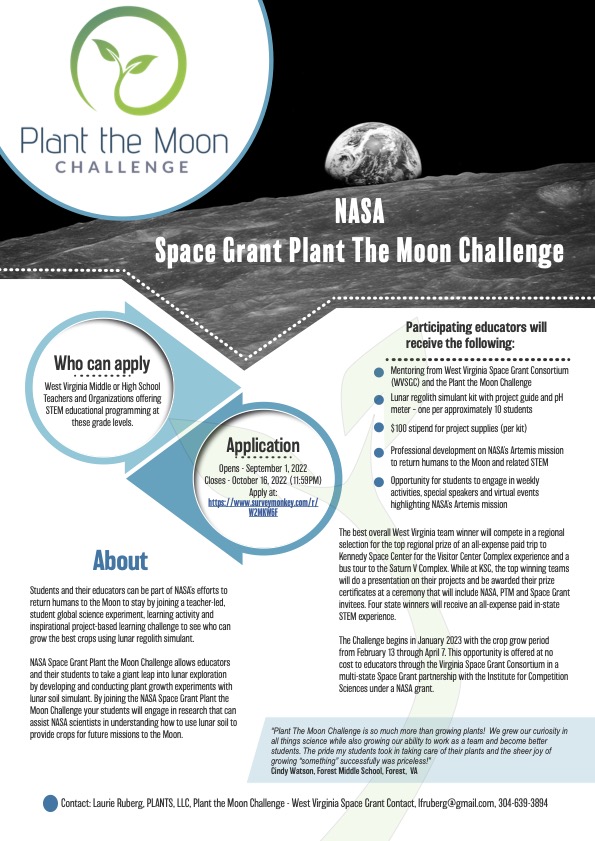
Sep 6, 2022 – NASA has awarded a $1 million grant through the NASA Space Grant K-12 Inclusiveness and Diversity in STEM (KIDS) initiative for the NASA Space Grant Plant the Moon Challenge project. The West Virginia Space Grant Consortium (WVSGC) is one of six space grant partners on the Plant the Moon Challenge team led by the Virginia Space Grant Consortium. The NASA Space Grant Plant the Moon Challenge proposal is one of four awards made nationally through the NASA Space Grant KIDS funding opportunity.
What does NASA hope to achieve through this Space Grant KIDS funding program?
NASA scientists and engineers hope that by providing experiences for students to learn about the Artemis mission, which will return human explorers to the Moon and Mars, students will understand the challenges involved in using lunar soils to grow crops for future human missions. By designing and conducting classroom-based experiments to grow the best plants they can using simulated lunar soil (regolith), middle and high school students will deepen their STEM knowledge and see direct connections between their investigations and NASA’s Artemis mission.

The Challenge will significantly extend the reach of the current international Plant the Moon Challenge in a six-state region that includes partnerships with the North Carolina, South Carolina, West Virginia, Florida, and Puerto RicoSpace Grant programs. Virginia Space Grant Consortium is serving as project lead.
The Plant the Moon Challenge (PTMC), developed by the Institute of Competition Sciences, is a teacher-led student global science experiment, learning activity and inspirational project-based learning challenge to see who can grow the best crops using lunar regolith. Participating educators receive a PTMC Activity Kit for each team of about ten students including lunar regolith simulant, a Project Guide, and a pH meter. Student groups work together to design their plant growth experiments using the simulant.

Experiment variables may include the plant growth setup structure, amount of water used, and nutrients added to the regolith simulant. Teacher-advised teams use the Project Guide to define their plant growth experiments. The grow period is eight weeks. For two weeks before the grow period, throughout the grow period, and for two weeks after the grow period, teams are engaged in weekly activities and virtual events that supplement their hands-on project activities with STEM learning activities connecting them with NASA Artemis-related content.
Piloted in 2021 and 2022, the Challenge has engaged over 4,000 students in its first two years. Through this grant, at least 13,080 additional students from targeted underrepresented and underserved populations and 510 formal and informal educators who instruct these students will be engaged with this authentic, Artemis-related, STEM learning experience in the three-year project period.
“The West Virginia Space Grant Consortium was inspired to engage teachers from eight schools across the state to participate in the Plant the Moon Challenge in spring 2023,” explains Dr. Melanie Page, Associate Vice President for Creative and Scholarly Activities and Director of NASA WV Space Grant/EPSCoR programs at West Virginia University. “Across West Virginia two high schools (in Bluefield and Charleston) and six middle schools (in Bluefield, Charleston, and Wheeling) are committed to participating in the Plant the Moon Challenge. This will be an exciting opportunity for West Virginia students to be part of a six-state regional NASA mission-focused, science competition.”
Virginia Space Grant Consortium Director Mary Sandy notes, “Our Virginia teachers and students were enthusiastic and very immersed in the [spring 2022] Challenge. Three of the schools, Forest Middle School in Forest, Va., Chesterfield Technical Center in Chesterfield, Va., and Academies of Loudoun in Leesburg, Va., won top prizes in the international Plant the Moon Challenge.” Cindy Watson, a teacher from Forest Middle School notes, “Plant the Moon Challenge is so much more than growing plants! We grew our curiosity in all things science while also growing our ability to work as a team and become better students. The pride my students took in taking care of their plants and the sheer joy of growing “something” successfully was priceless.”
The WVSGC is excited to be one of the partners working with the Institute of Competition Sciences to allow more students and educators to participate while adding a materials stipend for participating teachers, expanding professional development for educators, enhancing speakers and activities for participants, and providing experiential prizes in each state and at the regional level. The project will be externally evaluated.
The project’s Plant the Moon Challenges will be offered in the spring semesters of 2023, 2024, and 2025. Many participants for spring 2023 have already been identified including, schools, school systems and informal organizations such as Boys and Girls Clubs, 4H and Future Farmers of America. The project has broad appeal to science, biology, botany, earth science, and agricultural learning among other disciplines.
For more information about the NASA West Virginia Space Grant Consortium partnership in this project, contact: Melanie Page, Ph.D. For information about how you as a teacher or representative of a STEM non-profit can get involved in the Plant the Moon Challenge project, contact Laurie Ruberg with PLANTS, LLC, WV Coordinator for the NASA Plant the Moon Challenge education activities.


I am interested in doing this at a WV correctional school in Wheeling.